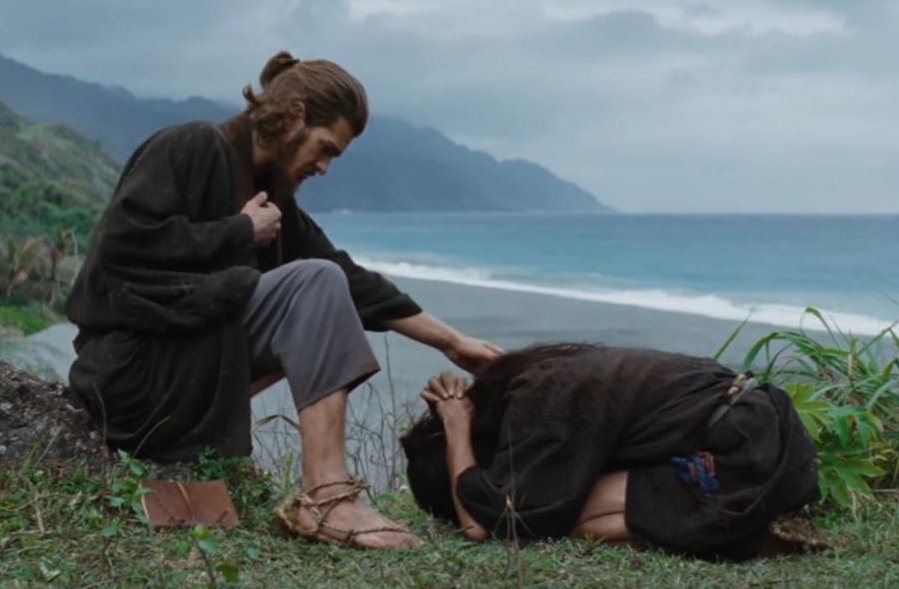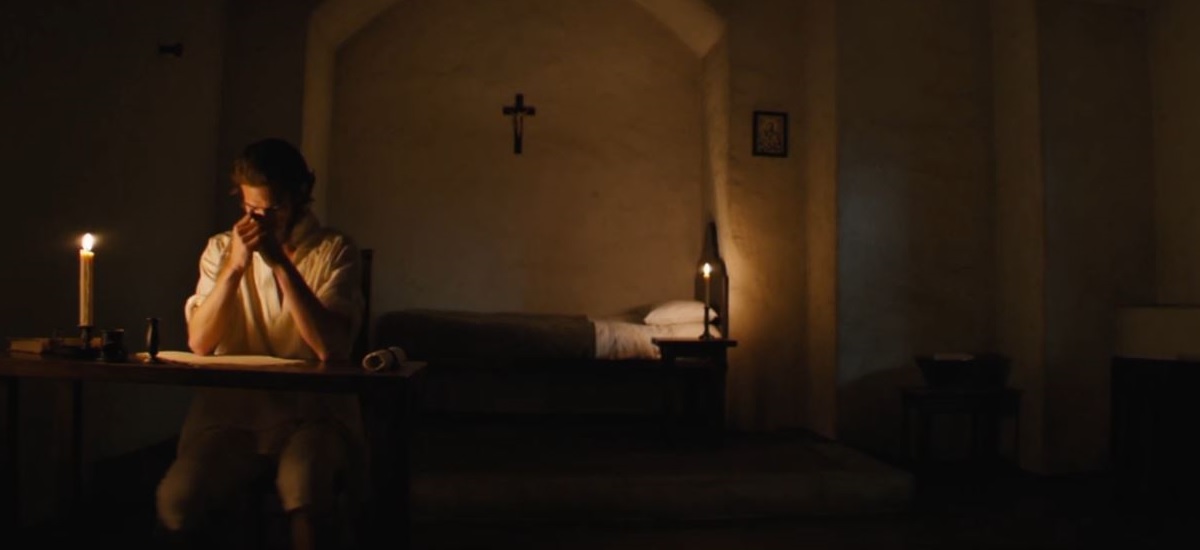For nearly 30 years Martin Scorsese had a dream. It was a simple dream, done complexly. He wished for the chance to adapt the beloved novel Chinmoku by Shusaku Endo for the screen. His hidden desire was to once again examine his relationship with religion, god and doubt. Now that Silence is finally completed, the question is, was the pilgrimage worth it? For Scorsese it certainly is, as he has made one of his most restrained, but also layered and complex films to date. It can only be hoped that audiences feel the same.
Any preconceptions one may have about Silence are laid to bare, directly from the start. Father Cristóvão Ferreira (Liam Neeson) is forced to witness the the torture and crucifixion of numerous Kakure Kirishitans (“Hidden Christians”) and friars. The hopes of the Japanese officials on hand, is to get Ferreira to apostatize, or “denounce god”. Then and only then, will those being persecuted, be spared. This is the last account he corresponds with Father Valignano (Ciaran Hinds), via letter, which is received five years later. Upon hearing the contents, two young priests, Rodrigues (Andrew Garfield) and Garrpe (Adam Driver), wish to seek out the whereabouts of their mentor. Neither one aware of the dangers that await.

The journey through Japan sees the two fathers met warmly in a handful of villages. Each one is more desperate and devout than the one before it. The villagers feel the need for the padres to stay in their city, for the fear of death without absolution is a fate worse than living through persecution. The first village visited greet the padres as a sign from god, that their torments are not in vain. None are more devout than Mokichi (Shin’ya Tsukamoto). When the padres gift him one of their cross, he returns the favor by presenting Rodrigues with a small crude crucifix. He tells them he knows it isn’t much, but it’s all they had to let know god they where there. The village rejoices that their prayers weren’t in vain, with persecution possibly right around the bend.
When the Japanese officials do come though, the young padres are witness not only to such savagery, yet also the power that lurks within these new poor souls. Each Christian is tasked with apostatizing, by trampling a fumie, a copper tablet inscribed with a picture of Jesus or Mary. To do so, is to denounce god, to refuse means certain death. In the films most harrowing scene, Rodrigues and Garrpe watch on as three Japanese Christians, Mokichi among them, are crucified in the ocean, beaten back by the waves. As they succumb one by one, Mokichi’s voice turns to a hymn, never defeated in his belief that paradise awaits him.
Scorsese takes his time, for impact. While the 141 minute run time may seem punishing at first, it allows the events to sink in deep, without seeming too overt or manipulative. Allowing the audience time and patience to ask itself questions about the proceedings, is a testament to smartly reserved film-making. It’s one thing to command a viewer to feel. It’s an entirely different beast to lead to the conclusion without them even knowing it.

Thankfully what separates Silence is its headiness and its desire to question the motives or actions of every character. That doubt plays a big part in the film shouldn’t come as a surprise, as it is only through exposing the humanity inside, that the audience can connect. Surely there will be a contingent who are not moved to meet the level of which the film is operating, but that doesn’t lessen the effort or narrative Scorsese and co-writer Jay Cocks wish to tell. Nor do they directly wish to provide all the answers. Don’t misunderstand, as the heart of Silence relies upon the ability for people to question the decisions they make and how they can possibly muster up the strength to ask for forgiveness, to forgive another, to embrace a foe, or find humility deep within, that was never know to have existed before.
Most of these events transpire under the surface layer of the film itself. Given that Martin Scorsese had almost 30 years to make this feature, nothing is left to chance. Take for instance the Inqusitor Inoue (Issei Ogata). Old and cruel, Inoue knows how best to eradicate Christianity from his home, while also mentioning that his only intention for doing so, is that it is his job. He speaks directly to Rodrigues, not down to him. A calculated move he thinks will allow Rodrigues to put down his guard, if only momentarily, in the hopes he can convince the priest to apostatize without much delay. That he mistakes doubt for weakness is just a minor misstep, as he sees the larger board in play.
Rounding out the powerful Japanese trifecta, are Kichijiro (Yosuke Kubozuka) and the Interpreter (Tadanobu Asano). Each of them command the screen with a different, but nonetheless important role. The Interpreter acts both as the Inquisitors lap dog and the devil whispering in Rodrigues’s ear. Asano, known only to Western audiences with his small turn in Marvel’s Thor films, has been one of Japan’s best actors for almost two decades. Here he smolders in every scene with great intensity, as a man who not only relishes his job, but desires to show Rodrigues the error of his pride.
Then there’s Kichijiro, the most layered, compelling and human of all the characters in the film. While he is essentially the Judas surrogate, he is also the core linchpin to Scorsese’s struggling. His survival instinct trumps his faith on numerous occasions, but he feels the brunt of his guilt. Continually asking for his confession to be heard after each new transgression, he challenges Rodrigues’s views, making him wonder if someone deserves to be saved, after doing so much. Kichijiro though has had his share of hardships, making it easy to sympathize, but not entirely forgive his wrongdoings. As time goes on, his appearances to Rodrigues serve as a grim reminder that he himself may be just as bad, concerning his pride of faith.
Each of the fathers are able to hold their own, with Garfield saddled with the brunt of the work. His Rodrigues is a man of ideals, struggling without answers, his devotion and faith constantly wavering and resolute. He believes that if he can be beacon for those that are persecuted, that his journey is not in vain, nor efforts blind to god. His pride, though, is questioned continually. Are his acts truly in the name of the righteous, or covering a fear he dares not face? While he is given less screen time than the others, Liam Neeson gives one of his most stirring performances as the enigmatic Ferraeira. Each moment he has gives more clarity to a man living beaten by himself and an unforgiving country, whose higher-ups are determined to squash any intruding ideas. His is a man who has seen too many horrors. His penance merely surviving, knowing the weight his heart and soul both bear.

Silence
offers up no true heroes, but instead, flawed individuals, trying to desperately live up to the lot they believe themselves to have been cast into. Every character has a weight to bear, each given equal measure as they strive to survive, letting their belief cloud their mind, until they either give in, or expire.
Poised and powerful with a languid eye that befalls a thunderous blow, Silence is a masterwork both in restraint and inward examination. While not everything will have an answer, making peace with what we can infer, can easily be enough. Scorsese proves here that not only is he one of the finest American directors of his generation, but one of the best ever.



